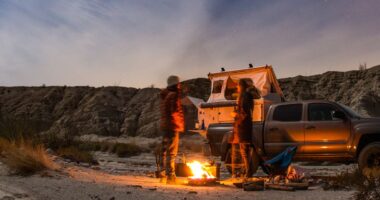
The Covid-19 vaccine developed by Pfizer Inc. and BioNTech SE generates robust immunity after one dose and can be stored in ordinary freezers instead of at ultracold temperatures, according to new research and data released by the companies.
The findings provide strong arguments in favor of delaying the second dose of the two-shot vaccine, as the U.K. has done. They could also have substantial implications on vaccine policy and distribution around the world, simplifying the logistics of distributing the vaccine.
A single shot of the vaccine is 85% effective in preventing symptomatic disease 15 to 28 days after being administered, according to a peer-reviewed study conducted by the Israeli government-owned Sheba Medical Center and published in the Lancet medical journal. Pfizer and BioNTech recommend that a second dose is administered 21 days after the first.
The finding is a vindication of the approach taken by the U.K. government to delay a second dose by up to 12 weeks so it could use limited supplies to deliver a single dose to more people, and could encourage others to follow suit. Almost one-third of the U.K.’s adult population has now received at least one vaccine shot. Other authorities in parts of Canada and Europe have prioritized an initial shot, hoping they will have enough doses for a booster when needed.
Preliminary data also suggest that the other widely used vaccine in the U.K. developed by AstraZeneca PLC and the University of Oxford could have a substantial effect after a first dose.
The Israeli findings came from the first real-world data about the effect of the vaccine gathered outside of clinical trials in one of the leading nations in immunization against the coronavirus. Israel has given the first shot to 4.2 million people—more than two-thirds of eligible citizens over 16 years old—and a second shot to 2.8 million, according to its health ministry. The country has around 9.3 million citizens.
The study, which involved about 9,000 people, also found a 75% reduction in both symptomatic and asymptomatic infections after the first shot. The study was published as a correspondence, meaning it represents the views of the authors and not the Lancet.
“This is the first study assessing effectiveness of a single vaccine dose in real-life conditions and shows early effectiveness, even before the second dose was administered,” said Eyal Leshem, director of Sheba’s Center for Travel Medicine and Tropical Diseases and one of the authors of the study.
Separately, the vaccine, which has been authorized in the U.S., the U.K., the EU and elsewhere, can be stored and transported at between minus 25 and minus 15 degrees Celsius, or minus 13 and 5 degrees Fahrenheit—similar to a consumer freezer—Pfizer and BioNTech said. Currently, the vaccine’s labels say it must be stored at between minus 80 and minus 60 degrees Celsius, requiring sophisticated equipment.
The companies said they were seeking approval from the U.S. Food and Drug Administration to change the vaccine’s storage rules, a move that would make it much easier to handle and potentially accessible to poorer countries with no access to ultracold distribution and storage equipment.
Ugur Sahin, the co-founder of BioNTech, said the temperature data would enable the vaccine to be handled by ordinary pharmacies.
Pfizer’s original clinical study showed 52.4% effectiveness after one shot, but didn’t differentiate between before and after two weeks. That focused on a two-dose regime and found 95% efficacy a week after the second shot. The Sheba study shows just one dose could reach close to that level of efficacy.
During the period when the data was gathered, a coronavirus variant that was first detected in the U.K. and is considered more contagious than the original pathogen made up over 81% of confirmed infections. The data amount to strong evidence that the vaccine is highly effective against a mutation that has forced European governments to prolong their lockdowns.
An annex to the Sheba study showed the vaccine had 94% effectiveness in preventing symptomatic Covid-19 as many as 22 to 28 days after the first shot. This result was similar to those from two previous analyses of the vaccine that used clinical data submitted to the FDA.
Britain is the only Western country mandating a delay of three months between first and second dose instead of the initially recommended three weeks. The U.S. Centers for Disease Control and Prevention has updated its guidance to say that doses can be administered 42 days apart, though the agency still advises individuals to stick to the initial schedule.
More on the Pandemic
The policy has enabled the U.K. to accelerate its vaccination program, but also stirred controversy in the scientific community. The need to set aside half of doses delivered for second injections is one reason why vaccination in the European Union has proceeded much more slowly.
Dr. Sahin told The Wall Street Journal in December that next-generation Covid-19 shots would probably consist of one dose.
“This groundbreaking research supports the British government’s decision to begin inoculating its citizens with a single dose of the vaccine,” said Arnon Afek, Sheba’s deputy director general.
The results might differ from others because the subjects were largely younger and healthier, said Gili Regev-Yochay, another of the authors. She also said the study couldn’t confirm how long protection from one shot would last, as most of the subjects received a second shot.
Write to Bojan Pancevski at [email protected]
Copyright ©2020 Dow Jones & Company, Inc. All Rights Reserved. 87990cbe856818d5eddac44c7b1cdeb8
This post first appeared on wsj.com








